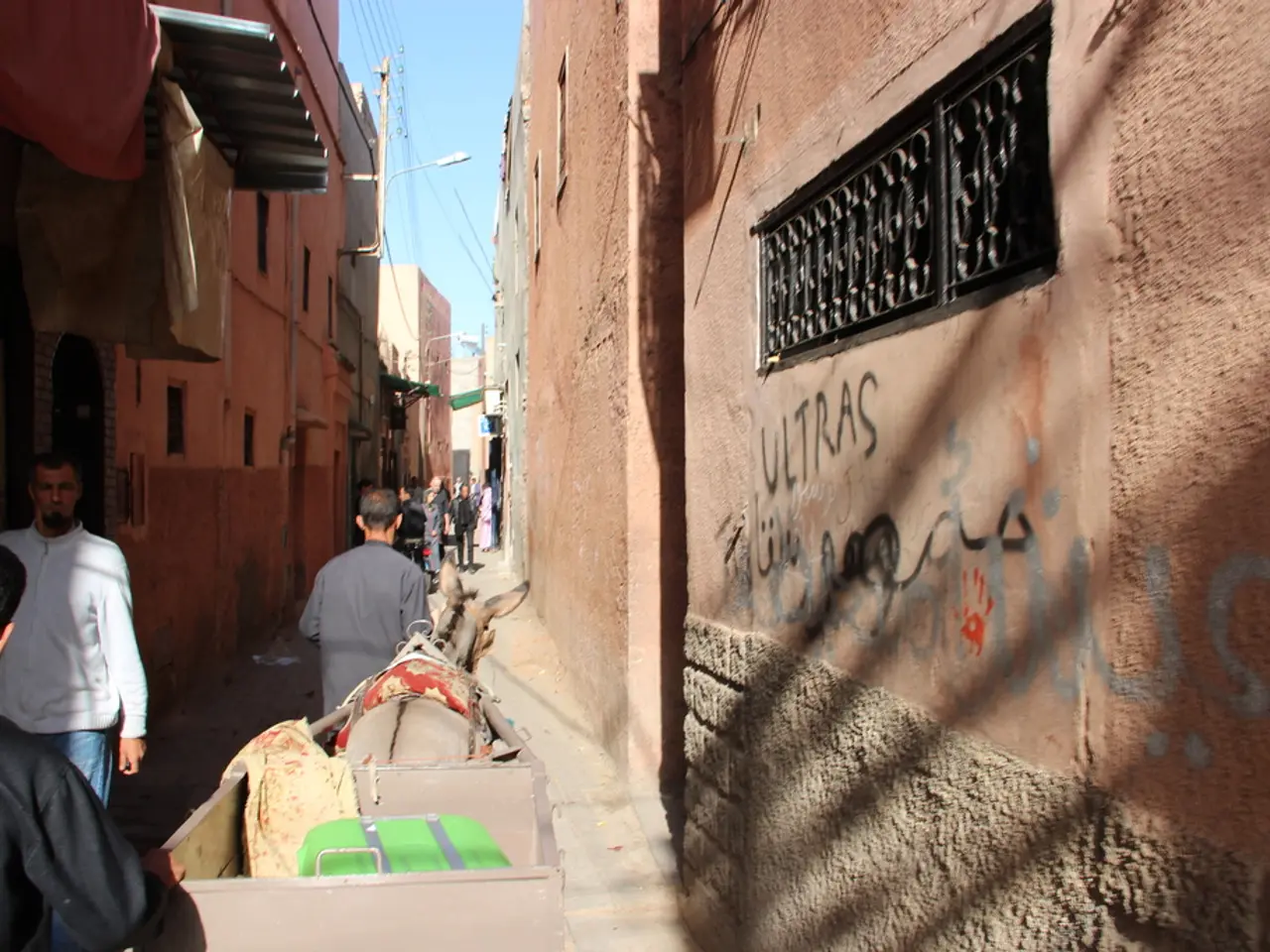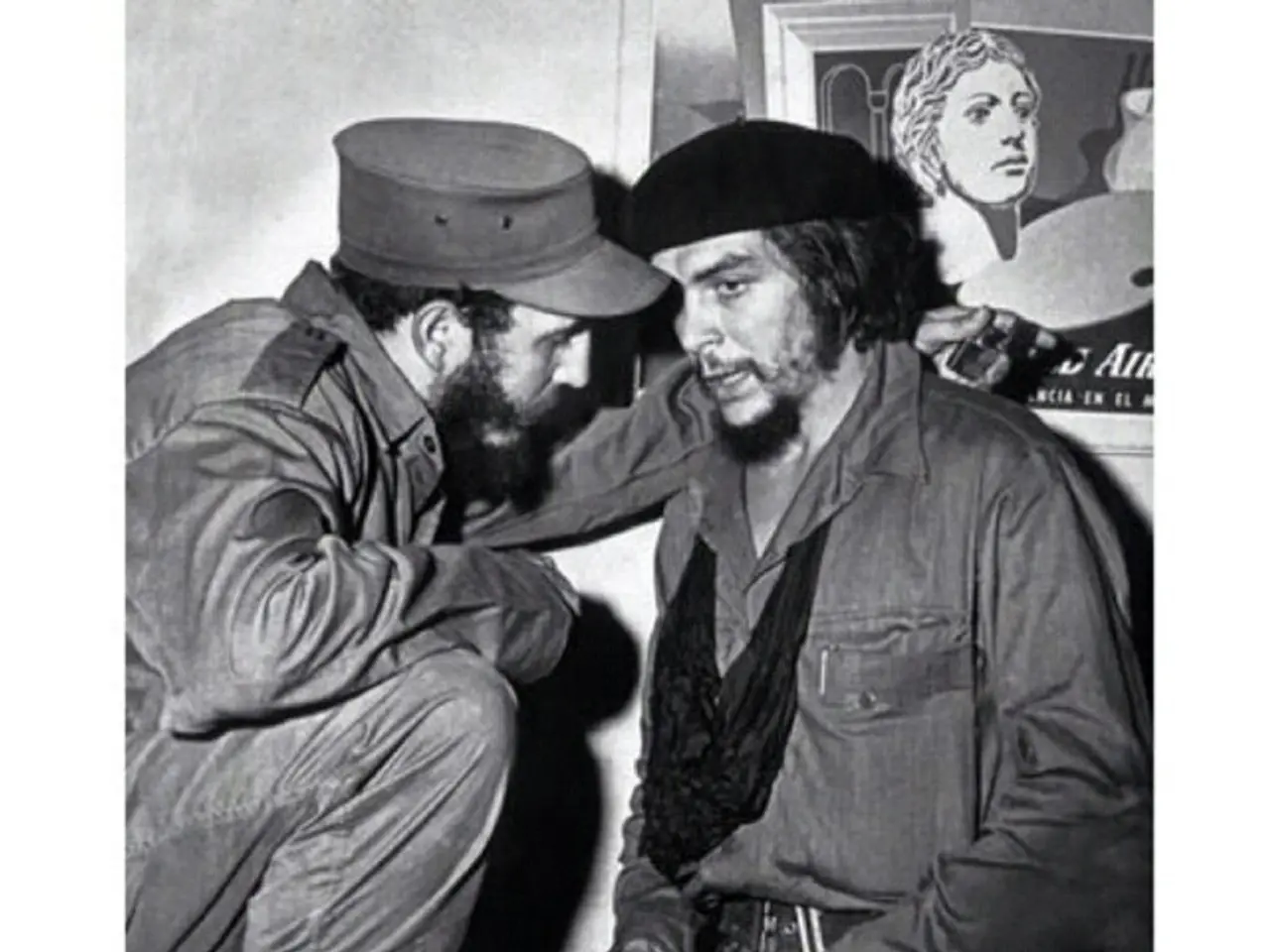Hamas refuses to disarm unless a Palestinian state is established.
In the ongoing conflict between Hamas and Israel, the two-state solution negotiations have hit a deadlock. This impasse is primarily due to Hamas's refusal to disarm before the establishment of an independent Palestinian state and ongoing disagreements over hostages and ceasefire terms.
The Islamist terror organization Hamas, based in the Gaza Strip, has made it clear that the creation of an independent and fully sovereign Palestinian state is a key demand. However, they reject disarming, a stance that is contingent upon the establishment of the state. Jerusalem, according to Hamas, would serve as the proposed capital of the independent Palestinian state.
Hamas's stance on disarming is deeply rooted in their belief that armed resistance can only be relinquished when Palestinian rights are fully realized. The organization identifies itself as an Islamist group and has been labelled a terror organization by many international bodies.
Despite international calls for Hamas to release hostages and disarm as prerequisites for a ceasefire and progress towards a political solution based on the two-state framework, Hamas continues to maintain a firm stance against disarming first. The League of Arab States recently endorsed this position for the first time.
Israeli Prime Minister Benjamin Netanyahu, on the other hand, remains firm on a military approach, emphasizing the full "conquest of the Strip" rather than concessions to Hamas. This position further complicates negotiations and limits prospects for a diplomatic breakthrough in the near term.
The humanitarian situation in Gaza is deteriorating rapidly due to Israeli restrictions on aid, contributing to famine and malnutrition. This adds urgency to international calls for a ceasefire and negotiations. However, so far, progress remains elusive.
Recently, Steve Witkoff, a mediator from the Forum of Hostage Families, stated that Hamas is ready for demilitarization. This statement was made during a meeting in the Israeli city of Tel Aviv. Hamas has since responded to Witkoff's remarks, but details about their response are not yet available.
It is important to note that Hamas's charter, last updated in 2017, outlines their stance on a Palestinian state. The charter claims all historic Palestine, including present-day Israel, as part of their vision for a future Palestinian state. However, Hamas has not publicly relinquished their claim on all of historic Palestine.
The ongoing deadlock in negotiations, the humanitarian crisis in Gaza, and the uncompromising stances from both sides bring renewed urgency to the situation. The international community continues to call for a peaceful resolution to the conflict, with the hope of ending the war and bringing everyone home.
References: 1. Article 1 2. Article 2 3. Article 3
The League of Arab States endorses Hamas's stance against disarming before the establishment of an independent Palestinian state. Despite recent statements suggesting a possible demilitarization from Hamas, their stance on their charter's claim of all historic Palestine remains unclear. The ongoing family tragedy of hostages, general news headlines of war-and-conflicts, and political disagreements cloud the prospects for a resolution to the ongoing conflict.




